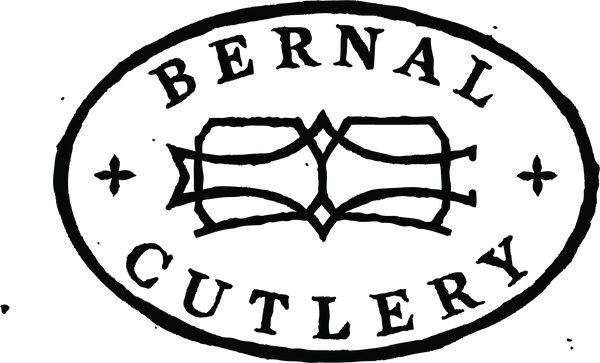-
Langue
-
Devise
-
NEW
- All New Products
- New Kitchen Knives
- New Kitchen Tools
- Latest Vintage
- New Outdoor & Utility
- New Pantry
-
What's in my Basket Series
- Ryo Sakai -Kuma Sushi
- Ian McNemar - Woodworker, Instructor
- Anna Voloshyna - Author
- Jorge Martinex Lillard - Lolo´
- Chris Yang - Piglet & Co
- Griffin Wilson - @cabincorn
- Gabe Rudolph - Gestura Utensils
- Marc Schechter - Square Pie Guys
- Molly DeCoudreaux - Food Photographer
- Geoff Davis - Burdell Soul Food
- Jen and Wes - @crazythickasians
- Josh Donald - Bernal Cutlery
- Kelly Kozak - Bernal Cutlery
- Jessica Sullivan - Poppy SF
- Sylvan Mishima Brackett - Rintaro
- Michael Myers - Film Character
- Ali Hooke - @alihooke
- Bruce Hill - The Chef's Press
- Dylan Carasco - Butcher's Guide
- Spencer Horowitz - Hadeem
-
Japanese Knives
- Ashi Hamono
- Gihei Knives
- Godo Tadaharu
- Hado
- Hatsukokoro
- Hitohira
- Jiro Nakagawa
- Iwasaki Kamisori
- Kaji-Bei
- Kamo Shiro
- Kanehide
- Konosuke
- MAC Knife
- Masakane
- Makoto Tadokoro Marushin
- Mizuno Axes
- Morihei
- Myojin Riki Sesakusho
- Nakagawa Hamono
- Naozumi
- Nigara Hamono
- Sakai Kikumori
- Shigefusa
- Tagai
- Takada no Hamono
- Tanabe Tatara
- Yoshikazu Tanaka
- Tosa
- Tsukasa Hinoura
- Yoshikane
- Wakui
-
Global Knives
- Allday Goods (GBR)
- A Wright & Son (GBR)
- Blenheim Forge (GBR)
- J Adams (GBR)
- John Nowill & Son (GBR)
- Wood Tools (GBR)
- Au Sabot (FRA)
- Chazeau Honoré (FRA)
- Fontenille Pataud (FRA)
- K Sabatier (FRA)
- David Margrita (FRA)
- Opinel (FRA)
- Eichenlaub Tableware (DEU)
- Friedr Herder (DEU)
- Windmühlenmesser (DEU)
- Florentine Kitchen Knives (ESP)
- Pallares (ESP)
- Helle (NOR)
- Andersson & Copra (SWE)
- Hults Bruks Axes (SWE)
- Kalthoff Axes (SWE)
- Morakniv (SWE)
- Iisakki Jarvenpaa (FIN)
- Zirh (TUR)
- Alma Knife Co. (USA)
- Bernal Cutlery (USA)
- Benchmade Knives (USA)
- Buck Knives (USA)
- Dexter Russell (USA)
- Rolin Knives (USA)
- Silverthorn (USA)
- Steelport Knife Co. (USA)
- Tactile Knife Company (USA)
-
Styles
- Bernal Cutlery Collaborations
- Knife Sets
- Carving Sets
- Japanese Kitchen Knives
- Western Kitchen Knives
- Chinese Style Cleavers
- Bread
- Butchery
- Cheese | Charcuterie
- Young Chefs
- Woodworking | Hobby | Craft
- Kamisori Razors
- Table | Steak
- Pocket & Folding
- Fixed Blade, Axes & Outdoor Tools
- Scissors | Shears | Snips
- Left Handed
- The Vault
- Vintage
- Sayas | Guards
- Sharpening
- Kitchen | Cookware
- Tableware | Service
- Pantry
- Accessories
- Deals
- Gift Cards
- INFO
ou
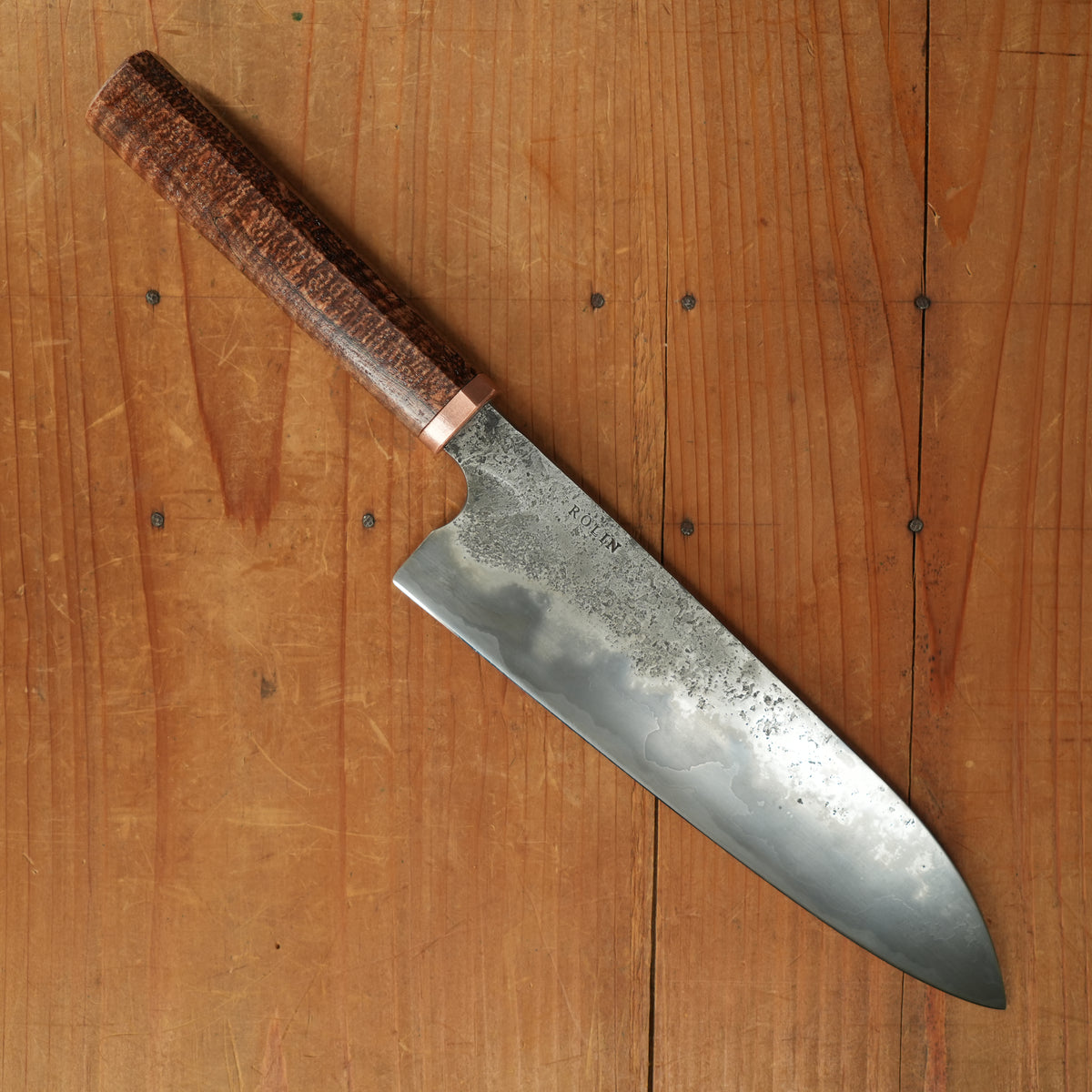
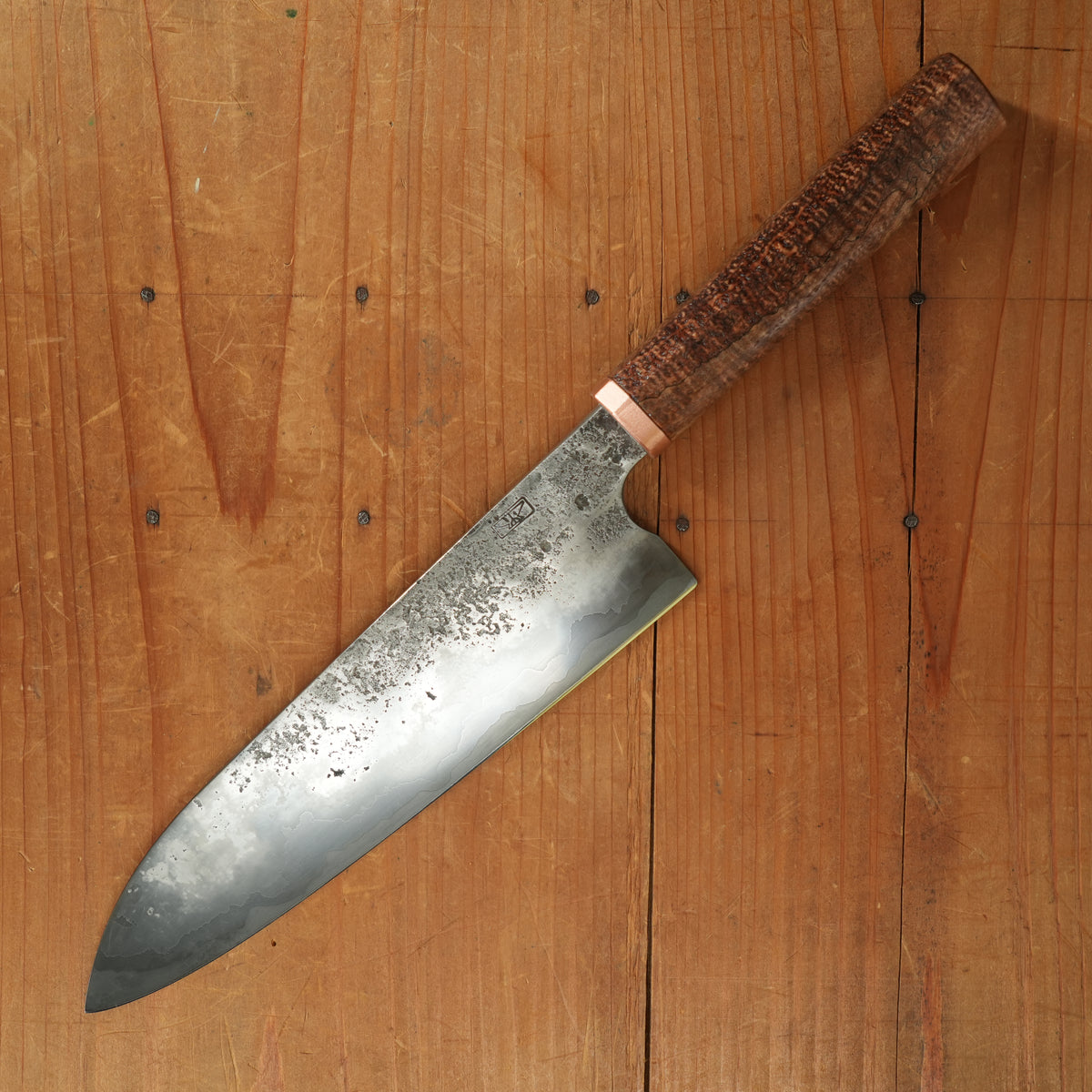
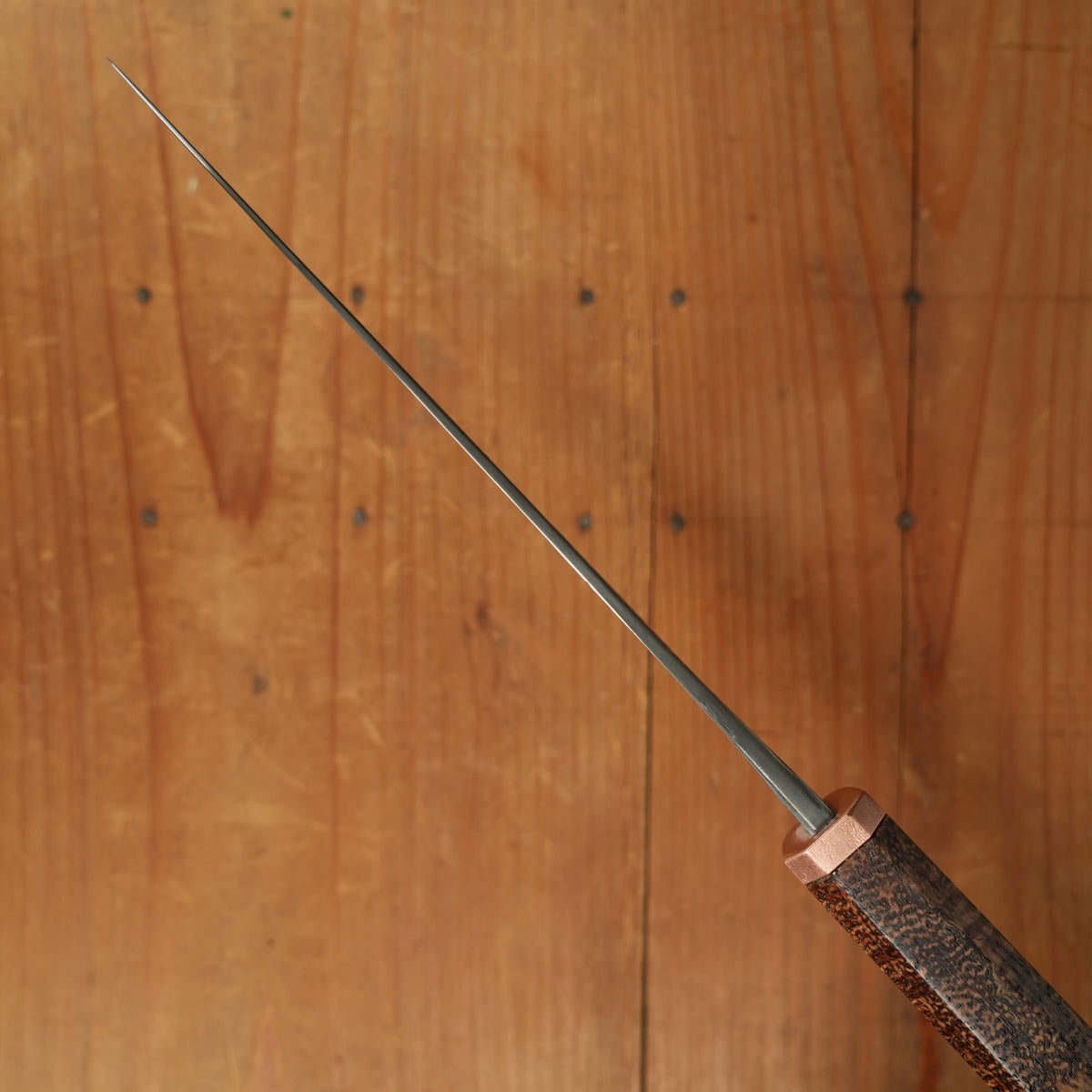
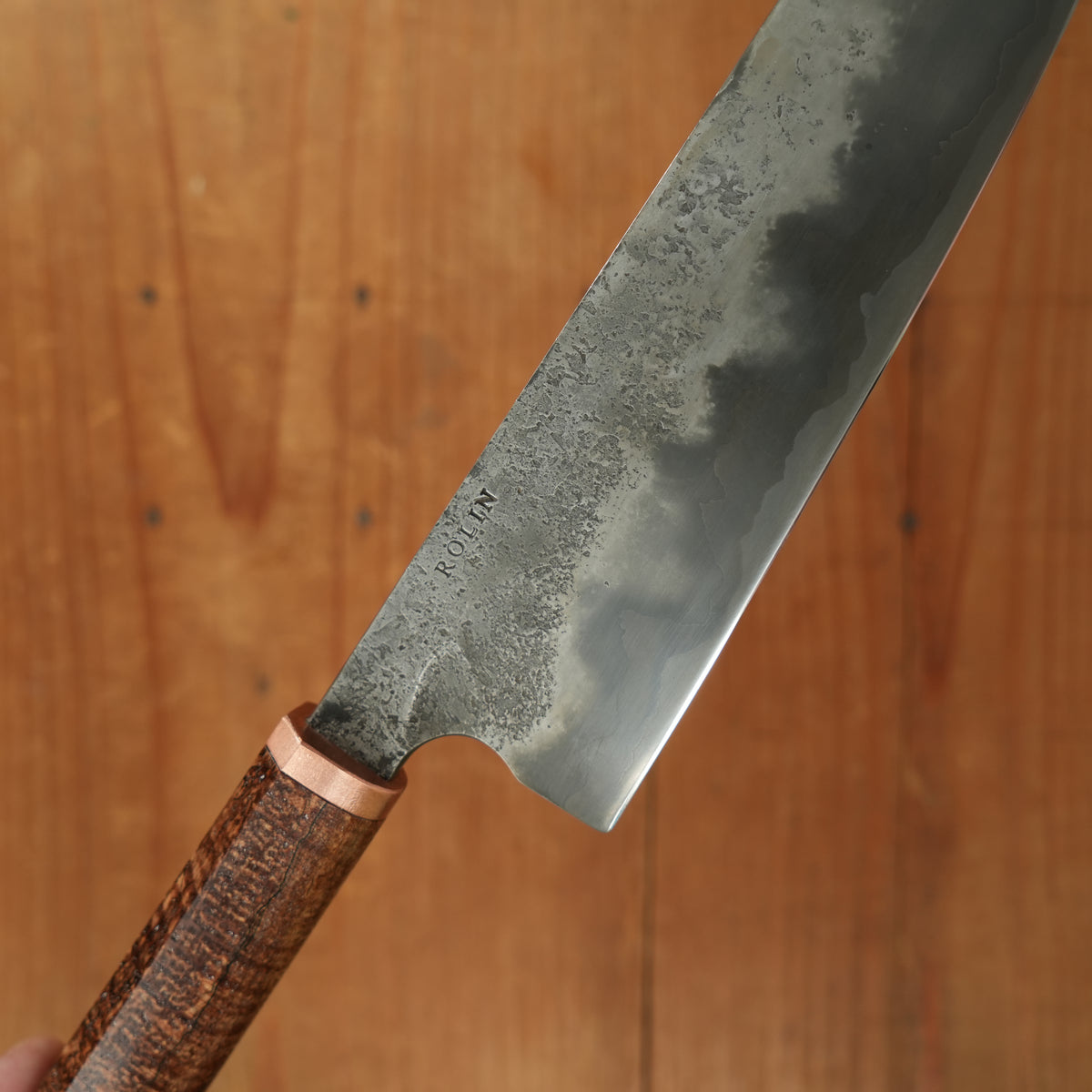
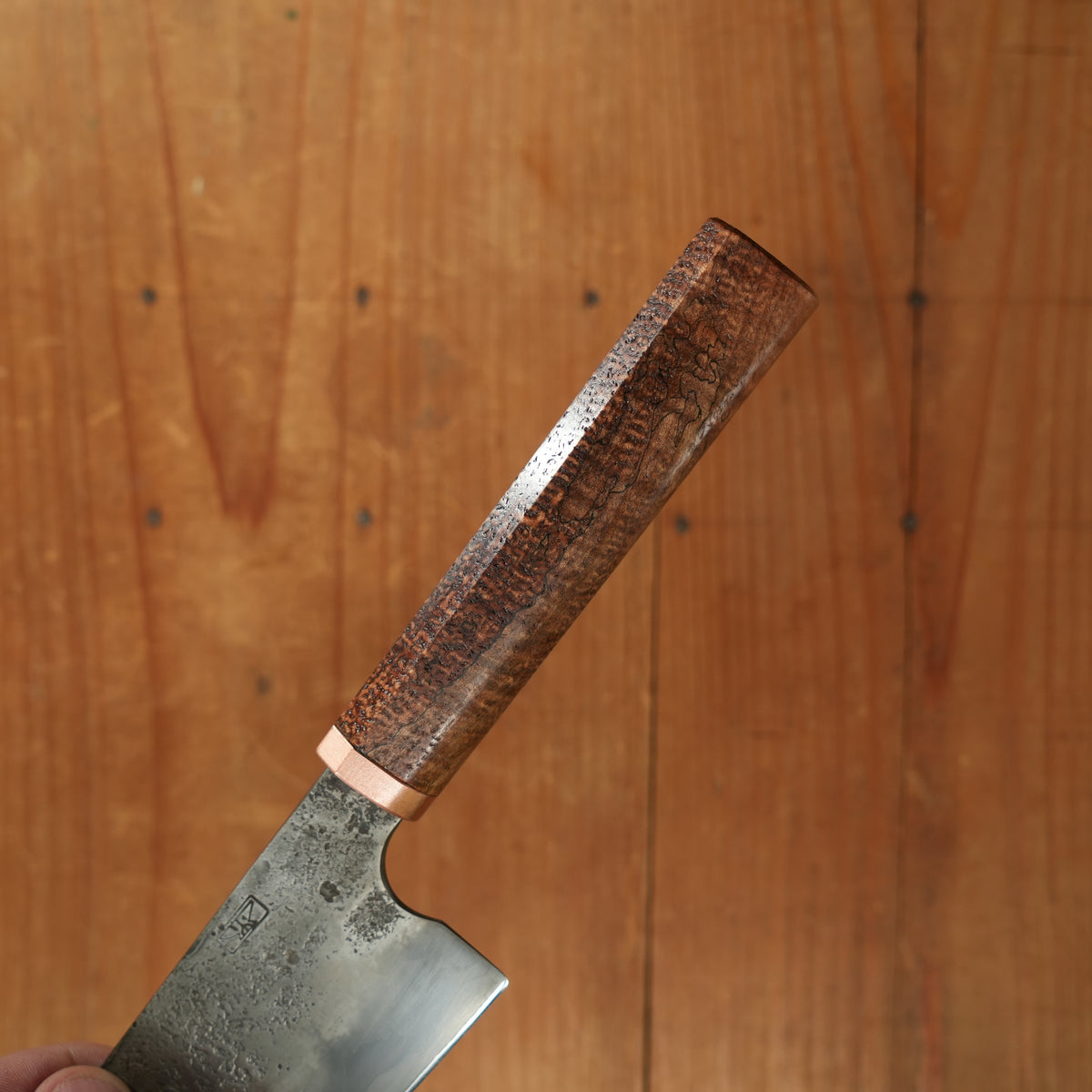
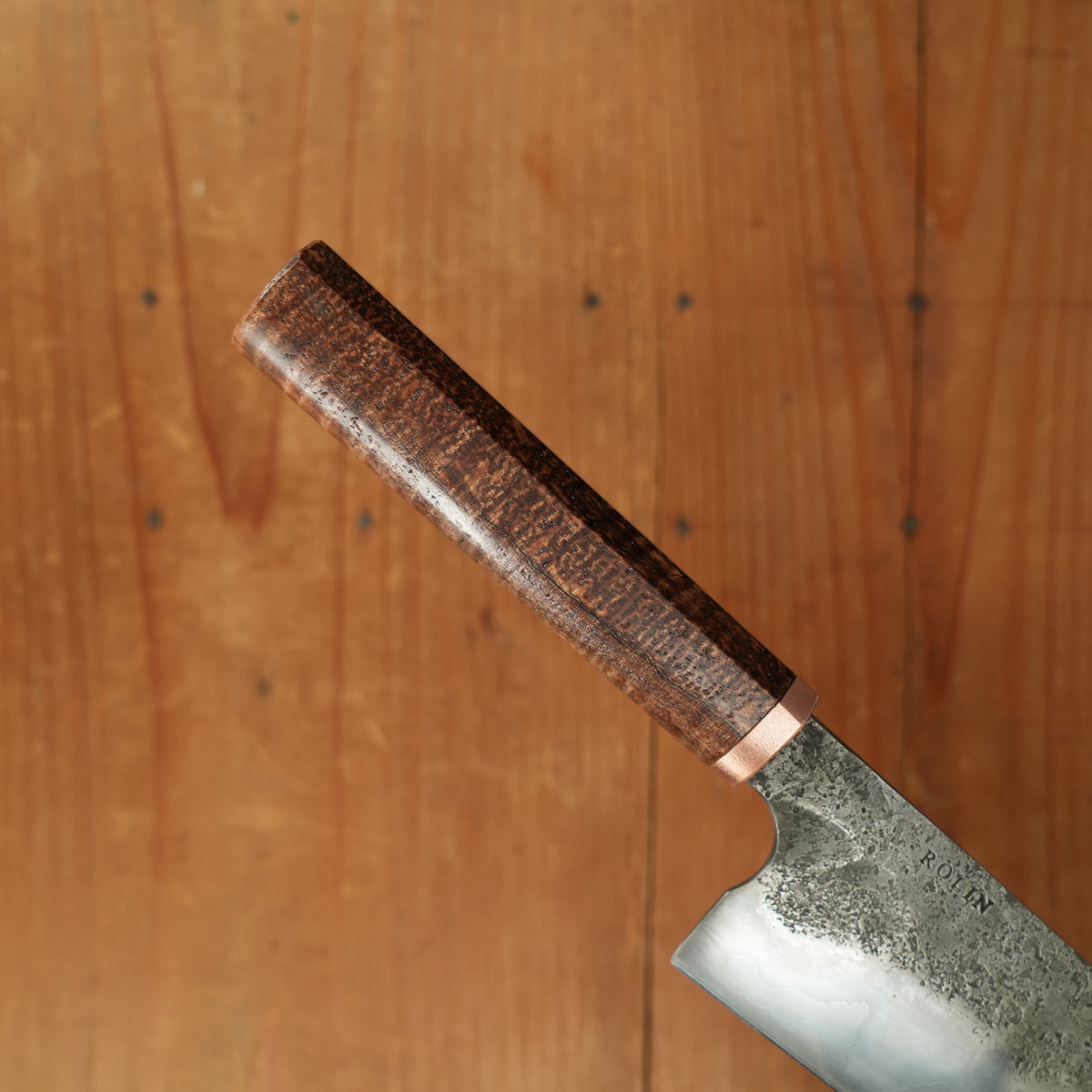
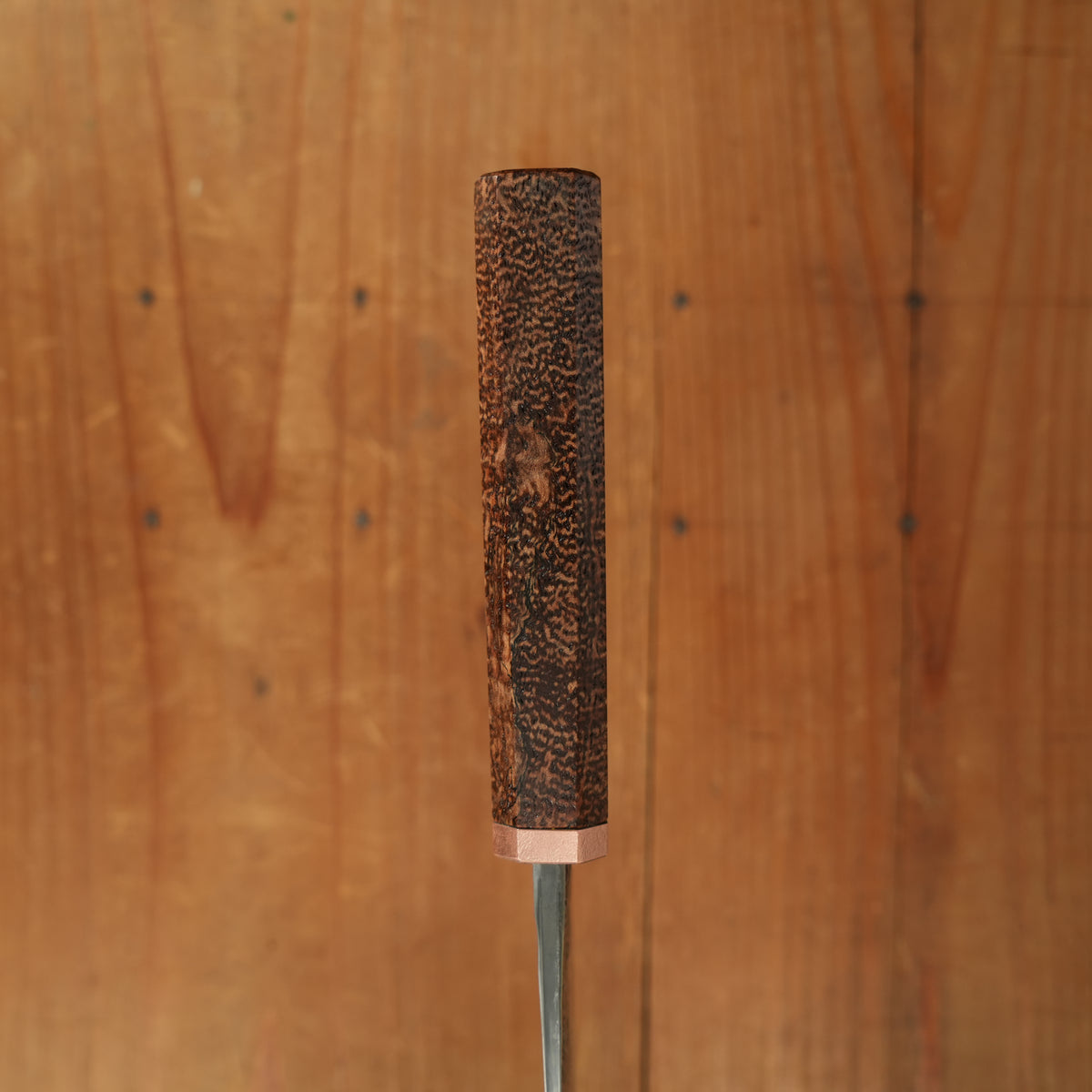
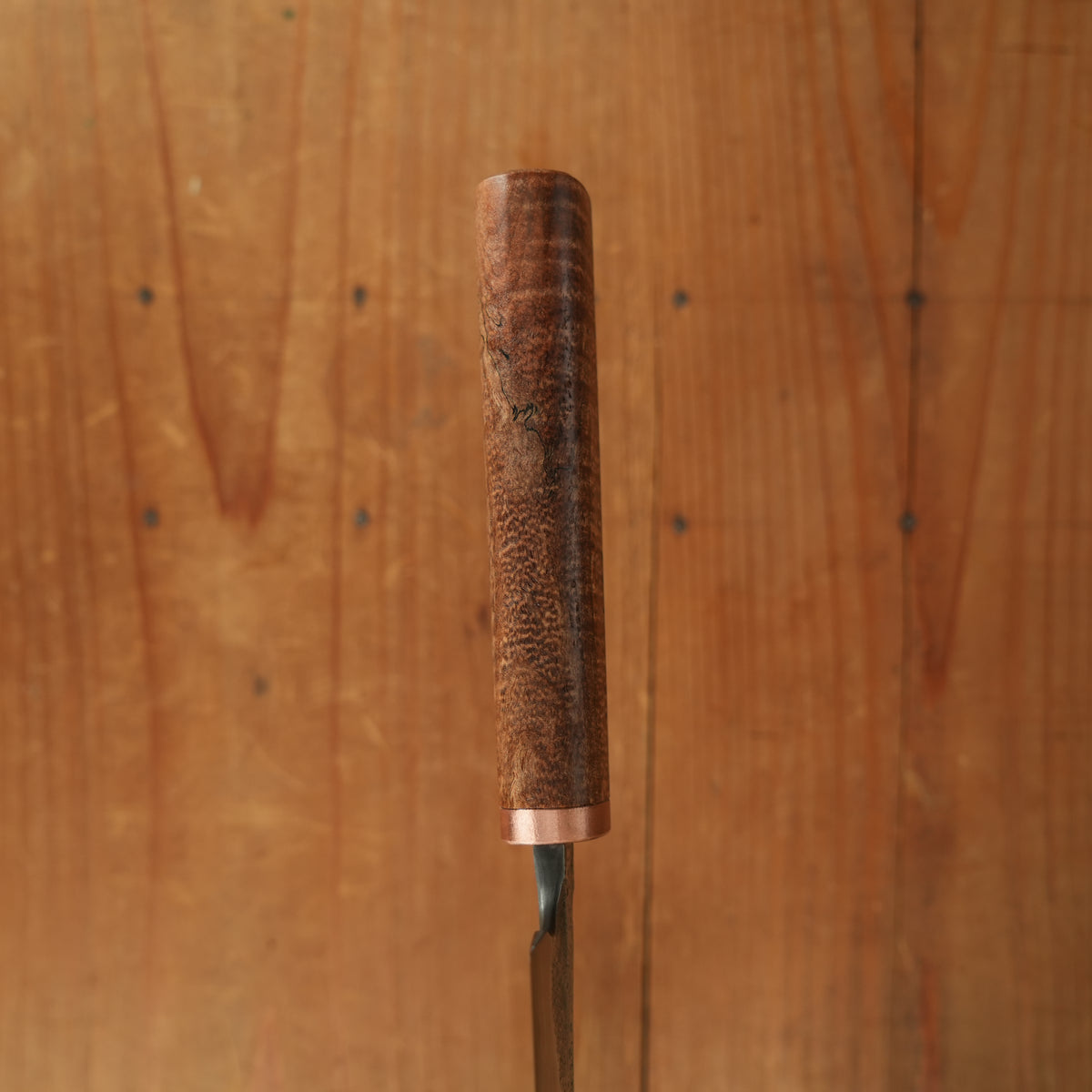
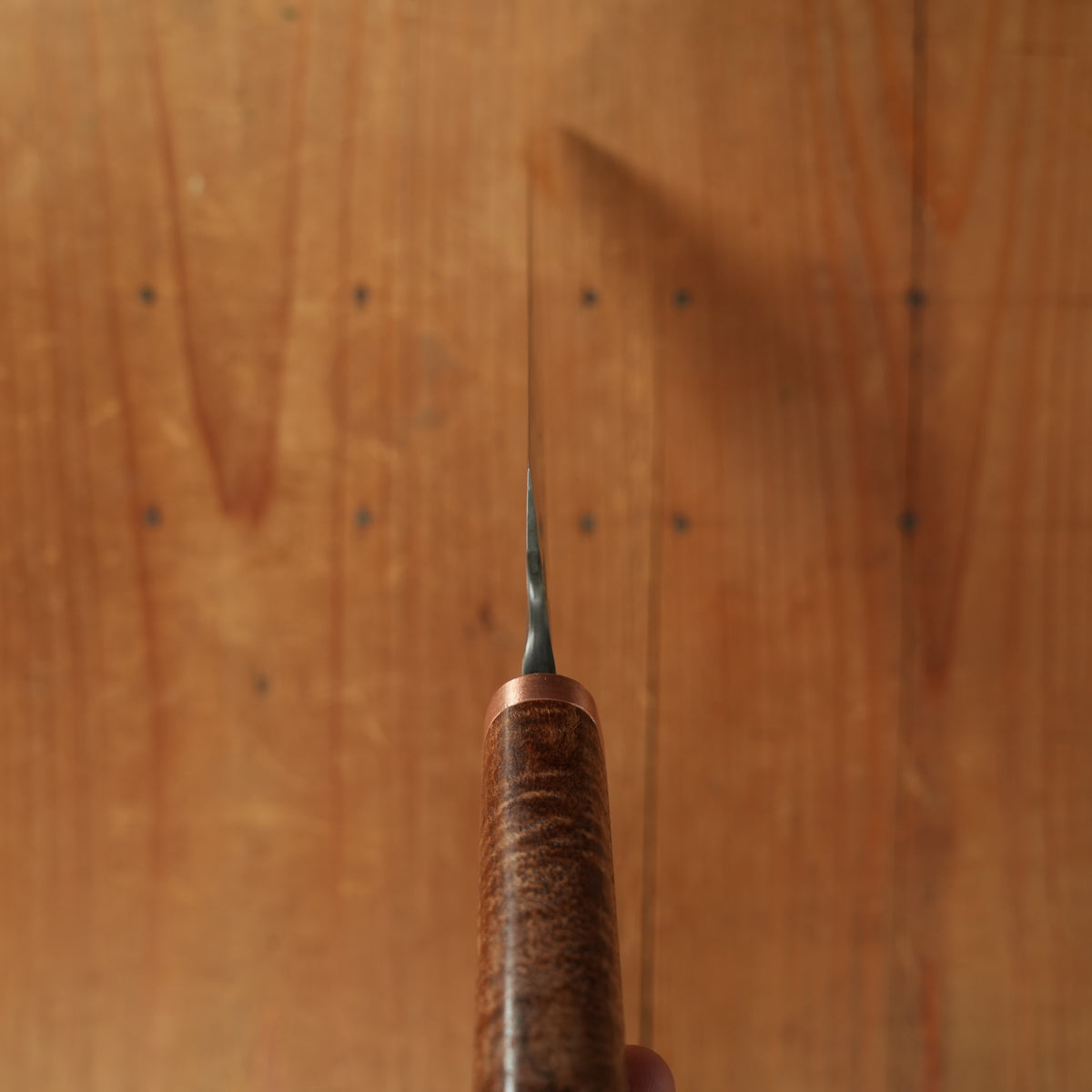
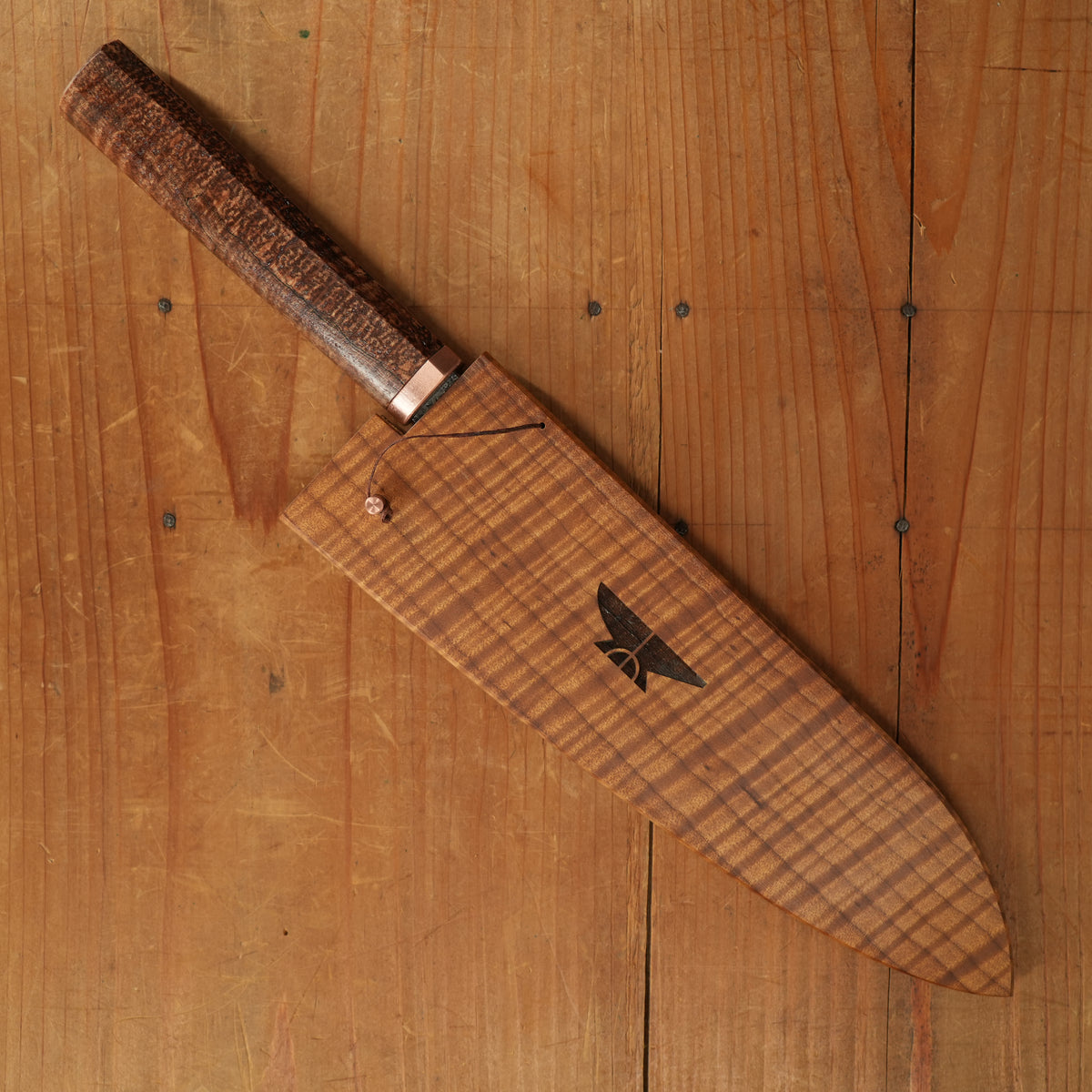
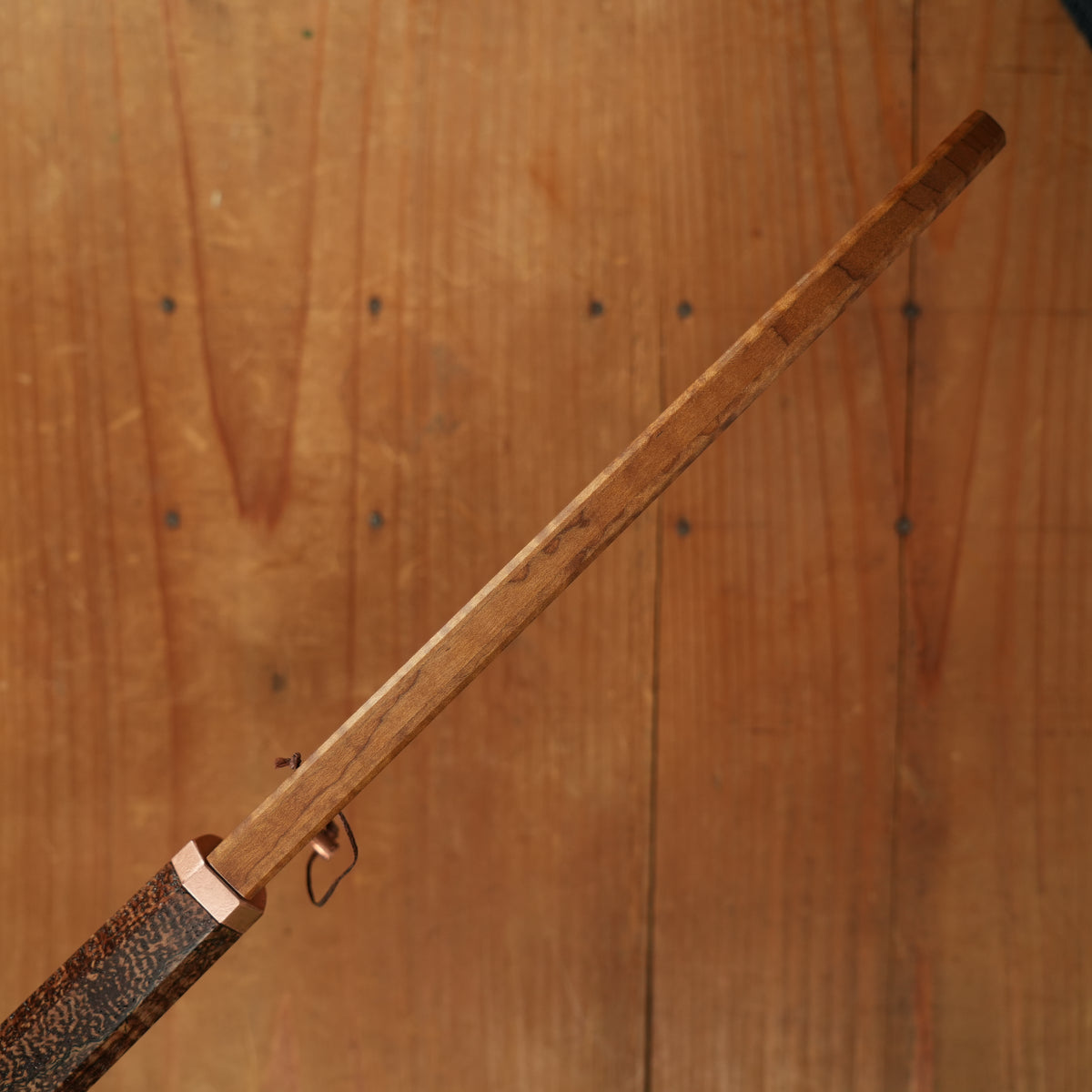
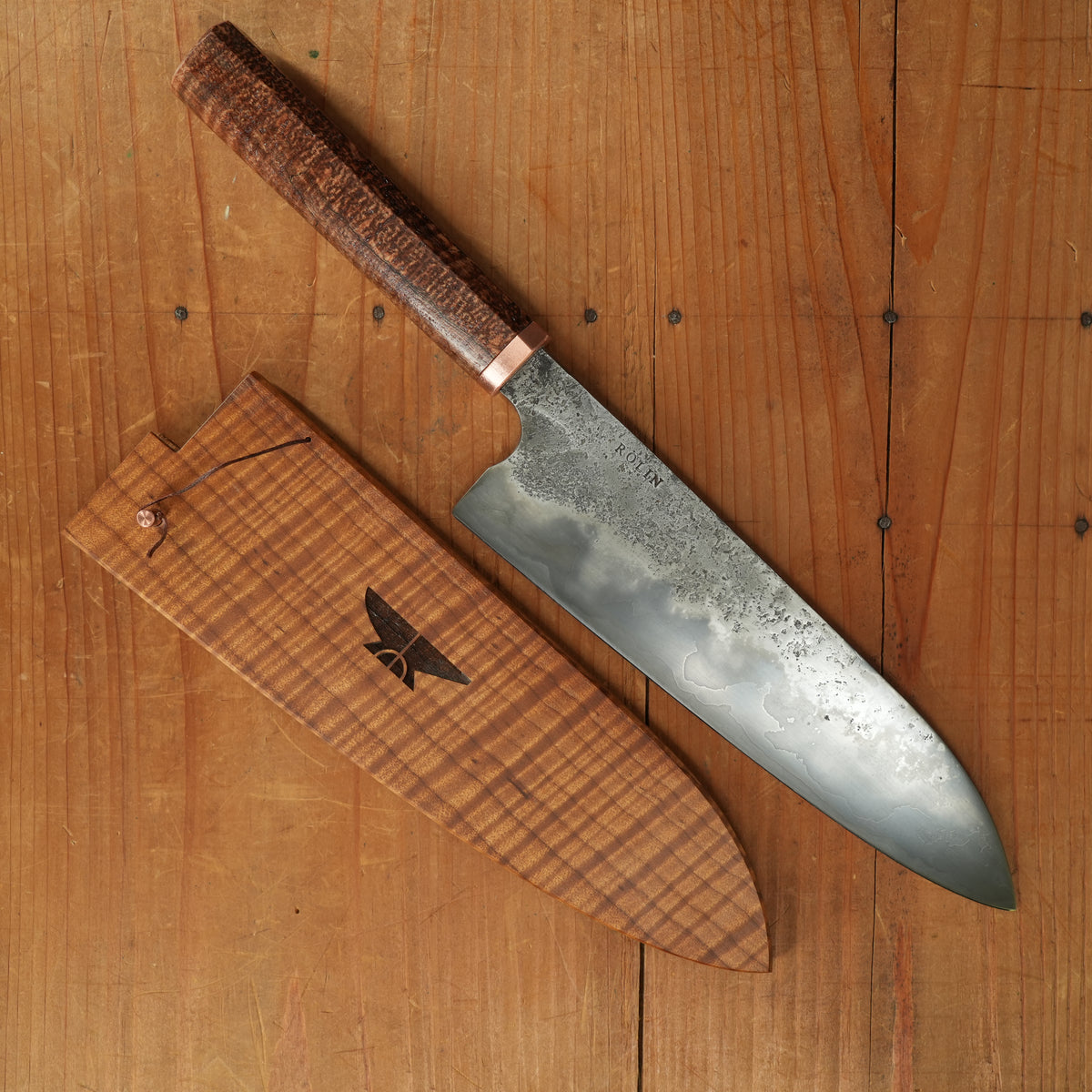
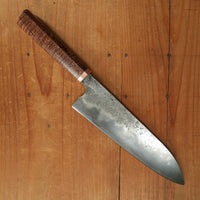
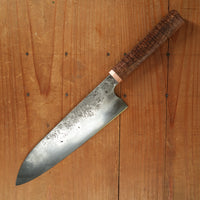
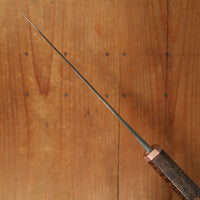
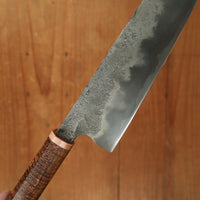
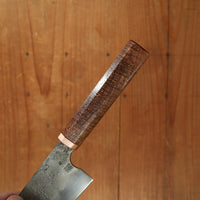
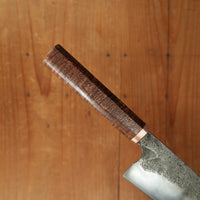
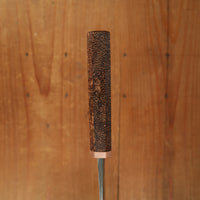
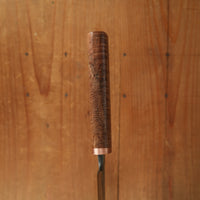
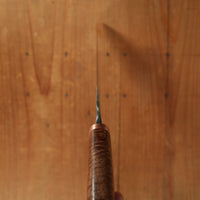
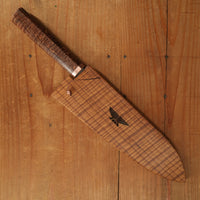
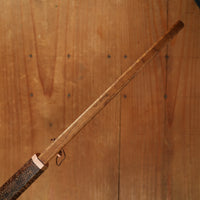
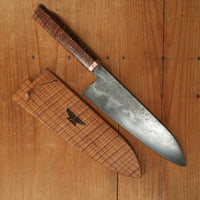
Rolin Knives GoMai 195mm Gyuto Lohman Carbon Spalted Maple & Copper with Saya
-
Prix ordinaire
-
$1,345.84
-
Prix soldé
-
$1,345.84
-
Prix ordinaire
-
SOLDES
Épuisé
-
Prix unitaire
- /par
- Prix ordinaire
- $1,345.84
- Prix soldé
- $1,345.84
- Prix ordinaire
- Prix unitaire
- /par
Hand forged GoMai style gyuto made from carbon steel from Friedr. Lohman. in Germany. The hand laminated 5 layer GoMai is made from a mild steel outer, 15n20 middle and 1.2419.05 hagane (core steel) and features a wide convex grind with a medium-thin edge with strong distal taper that allows for a precise and smooth cutting action with a substantial feel. The rokkaku hanmaru - half hexagon and half circle shaped - handle made from spalted maple and topped with a heirloom fit copper ferrule. Comes with a custom maple saya with a leashed copper pin, matching the copper ferrule.
1.2419.05 carbon steel is a special, low volume melt that is intended for the small market. Its name contains 100% German charm and its alloy contains a high carbon content at 1.3%, placing it in between Aogami 1 and Aogami Super while its 1.3% tungsten matches both Aogami 1 and 2. This tungsten, in combination with small amounts of Vanadium and Molybdenum, contribute to the formation of fine carbides that create a bitey cutting feel with great edge retention and toughness, without sacrificing sharpenability when heat treated appropriately.
Spalted maple is not a species of maple but is common maple that has been allowed to enter into a state of controlled spalting (partial decay) where the fungus that has begun to break down the wood fibers creates high contrast and distinct lines between the pale cream tones and the tan and gray patches. When the spalting is halted at the correct time, the fine grain structure and overall integrity of the wood are not compromised.
The copper ferrule is secured to the handle with epoxy and hidden pins with a slight bevel in between the handle and the ferrule. This style called heirloom (or museum) fit means that the handle and ferrule are not exactly flush to each other - an intentional detail that protects against hard edges becoming exposed if there is any shrinkage at the joint over time.
All aspects of this knife were meticulously laminated, forged, treated, ground, machined, worked, shaped and fit with an incredible amount of detail and intention by Nick Rolin. Originally from the Bay Area, Nick's blade shapes and styles are inspired by his years as a fine-dining line cook that preceded his time spent in NYC as a bartender after earning a degree in Sustainable Agriculture from UCSC. After a weekend knife making class in 2016, Nick began making knives for friends and the eventual demand lead to returning to the Bay Area in 2022 to make knives full-time.
We were able to test a few of Nick's knives and were impressed not only with the craftsmanship and aesthetics but also the edge performance, cutting feel and sharpenability of the knives. We are lucky to have Nick in our backyard and are proud to be able to introduce his work to our knife community.
Brand: Rolin Knives
Smith: Nick Rolin
Sharpener: Nick Rolin
Producing Area: Bay Area, CA, USA
Profile: Gyuto
Size: 195mm
Grind: Convex
Blade Type: GoMai
Steel Type: 1.2419.05, 15n20, Mild Steel
Handle: Spalted Maple & Copper Heirloom Fit
Total Length: 327mm
Handle Length: 123mm
Handle to Tip Length: 207mm
Blade Height: 52mm
Edge Length: 197mm
Thickness: 2.86mm
Weight: 210g
Hand Orientation: Ambidextrous
Saya: Maple; Included
HRC: 64
This is a carbon steel knife. Carbon steel is expected to develop a dark patina with use. It needs to be hand washed and dried immediately after use. Do not air dry. Do not put it in the dishwasher. Long exposure to moisture and debris will result in rust. Any rust development should be removed with a light abrasive.
Twisting, scraping, and heavy use, as well as use on hard and very dense objects can lead to edge damage. Use on a quality wooden cutting board will help the knife stay sharper for longer. Use on hard surfaces like plates and bamboo will reduce the edge life and can result in edge damage.
We recommend hand sharpening on whetstones. We have found that most Japanese knives perform best at a finer finish starting around 4000. Avoid pull through sharpeners and non-water cooled mechanized sharpening. Ceramic honing rods are preferred.
Recently Viewed
About Bernal Cutlery
We are a full-service cutlery shop offering sharpening services, Japanese and Western culinary knives, vintage knives, outdoor, pocket and craft knives, cooking tools and accessories. We also offer knife skills and sharpening classes, and more.
We are proud to serve kitchen professionals, knife enthusiasts and home cooks alike. Located in the Mission District of San Francisco, California.
